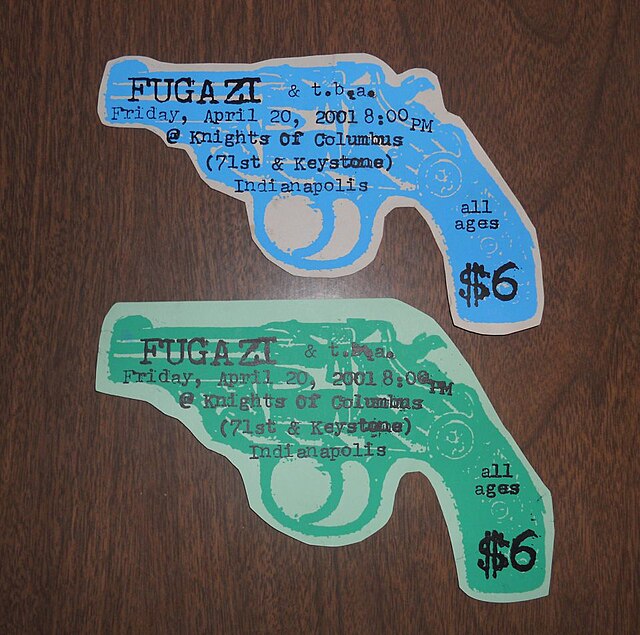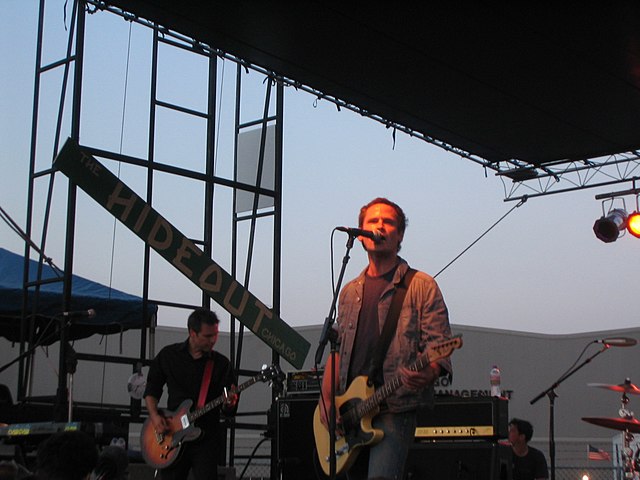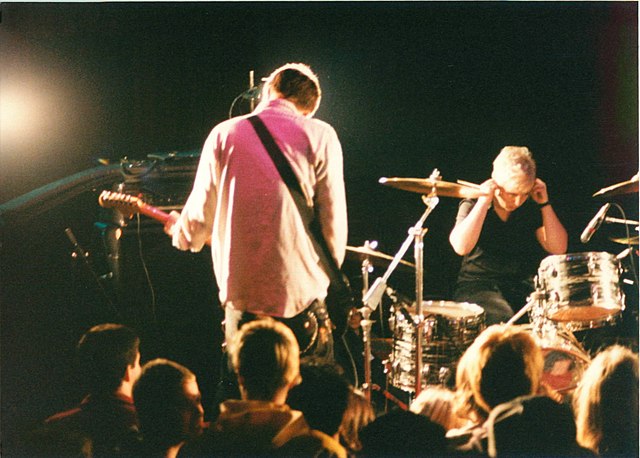Fugazi was an American post-hardcore band formed in Washington, D.C., in 1986. The band consisted of guitarists and vocalists Ian MacKaye and Guy Picciotto, bassist Joe Lally, and drummer Brendan Canty. They were noted for their style-transcending music, DIY ethical stance, manner of business practice, and contempt for the music industry.
Fugazi performing at Emo's in 2002; left to right: Ian MacKaye, Brendan Canty and Guy Picciotto (not pictured: Joe Lally)
MacKaye performing with Fugazi at the Academy 1 in Manchester England on October 30, 2002
Handmade tickets for a Fugazi concert from 2001 in Indianapolis, Indiana
Post-hardcore is a punk rock music genre that maintains the aggression and intensity of hardcore punk but emphasizes a greater degree of creative expression. Like the term "post-punk", the term "post-hardcore" has been applied to a broad constellation of groups. Initially taking inspiration from post-punk and noise rock, post-hardcore began in the 1980s with bands like Hüsker Dü and Minutemen. The genre expanded in the 1980s and 1990s with releases by bands from cities that had established hardcore scenes, such as Fugazi from Washington, D.C. as well as groups such as Big Black, Jawbox, Quicksand, and Shellac that stuck closer to post-hardcore's noise rock roots. Dischord Records became a major nexus of post-hardcore during this period.
The band Naked Raygun in 2012
Fugazi during their last pre-hiatus tour, 2002. The band's influence was summarized by reviewer Andy Kellman with the following statement: "To many, Fugazi meant as much to them as Bob Dylan did to their parents."
Post-hardcore band Girls Against Boys in 2006
Unwound emerged from Olympia, Washington.






